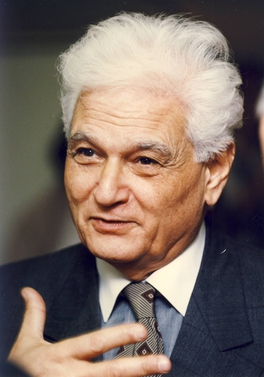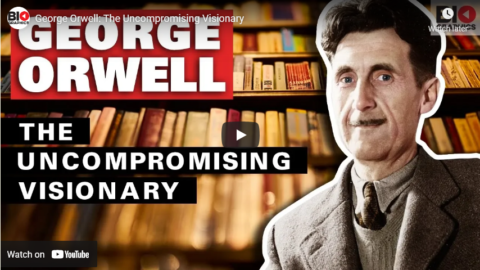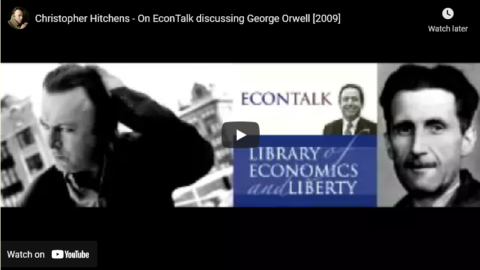National characteristics are not easy to pin down, and when pinned down they often turn out to be trivialities or seem to have no connection with one another. Spaniards are cruel to animals, Italians can do nothing without making a deafening noise, the Chinese are addicted to gambling. Obviously such things don’t matter in themselves. Nevertheless, nothing is causeless, and even the fact that Englishmen have bad teeth can tell something about the realities of English life.
Here are a couple of generalizations about England that would be accepted by almost all observers. One is that the English are not gifted artistically. They are not as musical as the Germans or Italians, painting and sculpture have never flourished in England as they have in France. Another is that, as Europeans go, the English are not intellectual. They have a horror of abstract thought, they feel no need for any philosophy or systematic “world-view”. Nor is this because they are “practical”, as they are so fond of claiming for themselves. One has only to look at their methods of town-planning and water-supply, their obstinate clinging to everything that is out of date and a nuisance, a spelling system that defies analysis, and a system of weights and measures that is intelligible only to the compilers of arithmetic books, to see how little they care about mere efficiency. But they have a certain power of acting without taking thought. Their world-famed hypocrisy – their double-faced attitude towards the Empire, for instance – is bound up with this. Also, in moments of supreme crisis the whole nation can suddenly draw together and act upon a species of instinct, really a code of conduct which is understood by almost everyone, though never formulated. The phrase that Hitler coined for the Germans, “a sleep-walking people”, would have been better applied to the English. Not that there is anything to be proud of in being called a sleep-walker.
George Orwell, “The Lion And The Unicorn: Socialism and the English Genius”, 1941-02-19.
October 20, 2021
QotD: The English
October 15, 2021
QotD: England and the English
When you come back to England from any foreign country, you have immediately the sensation of breathing a different air. Even in the first few minutes dozens of small things conspire to give you this feeling. The beer is bitterer, the coins are heavier, the grass is greener, the advertisements are more blatant. The crowds in the big towns, with their mild knobby faces, their bad teeth and gentle manners, are different from a European crowd. Then the vastness of England swallows you up, and you lose for a while your feeling that the whole nation has a single identifiable character. Are there really such things as nations? Are we not forty-six million individuals, all different? And the diversity of it, the chaos! The clatter of clogs in the Lancashire mill towns, the to-and-fro of the lorries on the Great North Road, the queues outside the Labour Exchanges, the rattle of pin-tables in the Soho pubs, the old maids hiking to Holy Communion through the mists of the autumn morning – all these are not only fragments, but characteristic fragments, of the English scene. How can one make a pattern out of this muddle?
But talk to foreigners, read foreign books or newspapers, and you are brought back to the same thought. Yes, there is something distinctive and recognizable in English civilization. It is a culture as individual as that of Spain. It is somehow bound up with solid breakfasts and gloomy Sundays, smoky towns and winding roads, green fields and red pillar-boxes. It has a flavour of its own. Moreover it is continuous, it stretches into the future and the past, there is something in it that persists, as in a living creature. What can the England of 1940 have in common with the England of 1840? But then, what have you in common with the child of five whose photograph your mother keeps on the mantelpiece? Nothing, except that you happen to be the same person.
And above all, it is your civilization, it is you. However much you hate it or laugh at it, you will never be happy away from it for any length of time. The suet puddings and the red pillar-boxes have entered into your soul. Good or evil, it is yours, you belong to it, and this side the grave you will never get away from the marks that it has given you.
Meanwhile England, together with the rest of the world, is changing. And like everything else it can change only in certain directions, which up to a point can be foreseen. That is not to say that the future is fixed, merely that certain alternatives are possible and others not. A seed may grow or not grow, but at any rate a turnip seed never grows into a parsnip. It is therefore of the deepest importance to try and determine what England is, before guessing what part England can play in the huge events that are happening.
George Orwell, “The Lion And The Unicorn: Socialism and the English Genius”, 1941-02-19.
October 6, 2021
QotD: British military incompetence
There is much in England that this explains. It explains the decay of country life, due to the keeping-up of a sham feudalism which drives the more spirited workers off the land. It explains the immobility of the public schools, which have barely altered since the ‘eighties of the last century. It explains the military incompetence which has again and again startled the world. Since the ‘fifties every war in which England has engaged has started off with a series of disasters, after which the situation has been saved by people comparatively low in the social scale. The higher commanders, drawn from the aristocracy, could never prepare for modern war, because in order to do so they would have had to admit to themselves that the world was changing. They have always clung to obsolete methods and weapons, because they inevitably saw each war as a repetition of the last. Before the Boer War they prepared for the Zulu War, before the 1914 for the Boer War, and before the present war for 1914. Even at this moment hundreds of thousands of men in England are being trained with the bayonet, a weapon entirely useless except for opening tins. It is worth noticing that the navy and, latterly, the Air Force, have always been more efficient than the regular army. But the navy is only partially, and the Air Force hardly at all, within the ruling-class orbit.
It must be admitted that so long as things were peaceful the methods of the British ruling class served them well enough. Their own people manifestly tolerated them. However unjustly England might be organized, it was at any rate not torn by class warfare or haunted by secret police. The Empire was peaceful as no area of comparable size has ever been. Throughout its vast extent, nearly a quarter of the earth, there were fewer armed men than would be found necessary by a minor Balkan state. As people to live under, and looking at them merely from a liberal, negative standpoint, the British ruling class had their points. They were preferable to the truly modern men, the Nazis and Fascists. But it had long been obvious that they would be helpless against any serious attack from the outside.
George Orwell, “The Lion And The Unicorn: Socialism and the English Genius”, 1941-02-19.
October 1, 2021
September 20, 2021
QotD: English jingoism
In England all the boasting and flag-wagging, the “Rule Britannia” stuff, is done by small minorities. The patriotism of the common people is not vocal or even conscious. They do not retain among their historical memories the name of a single military victory. English literature, like other literatures, is full of battle-poems, but it is worth noticing that the ones that have won for themselves a kind of popularity are always a tale of disasters and retreats. There is no popular poem about Trafalgar or Waterloo, for instance. Sir John Moore’s army at Corunna, fighting a desperate rear-guard action before escaping overseas (just like Dunkirk!) has more appeal than a brilliant victory. The most stirring battle-poem in English is about a brigade of cavalry which charged in the wrong direction. And of the last war, the four names which have really engraved themselves on the popular memory are Mons, Ypres, Gallipoli and Passchendaele, every time a disaster. The names of the great battles that finally broke the German armies are simply unknown to the general public.
The reason why the English anti-militarism disgusts foreign observers is that it ignores the existence of the British Empire. It looks like sheer hypocrisy. After all, the English have absorbed a quarter of the earth and held on to it by means of a huge navy. How dare they then turn round and say that war is wicked?
It is quite true that the English are hypocritical about their Empire. In the working class this hypocrisy takes the form of not knowing that the Empire exists. But their dislike of standing armies is a perfectly sound instinct. A navy employs comparatively few people, and it is an external weapon which cannot affect home politics directly. Military dictatorships exist everywhere, but there is no such thing as a naval dictatorship. What English people of nearly all classes loathe from the bottom of their hearts is the swaggering officer type, the jingle of spurs and the crash of boots. Decades before Hitler was ever heard of, the word “Prussian” had much the same significance in England as “Nazi” has to-day. So deep does this feeling go that for a hundred years past the officers of the British Army, in peace-time, have always worn civilian clothes when off duty.
George Orwell, “The Lion And The Unicorn: Socialism and the English Genius”, 1941-02-19.
September 6, 2021
QotD: Torturing the English language for “antiracist” ends
I caught a glimpse of Ibram X. Kendi’s recent appearance at the Aspen Ideas Festival, the annual woke, oxygen-deprived hajj for the left-media elites. He was asked to define racism — something you’d think he’d have thought a bit about. This was his response: “Racism is a collection of racist policies that lead to racial inequity that are substantiated by racist ideas.” He does this a lot. He repeats Yoda-stye formulae: “There is no such thing as a nonracist or race-neutral policy … If discrimination is creating equity, then it is antiracist. If discrimination is creating inequity, then it is racist.” These maxims pepper his tomes like deep thoughts in a self-help book. When he proposes specific action to counter racism, for example, he suggests: “Deploy antiracist power to compel or drive from power the unsympathetic racist policymakers in order to institute the antiracist policy.” “Always vote for the leftist” is a bit blunter.
Orwell had Kendi’s number: “The appropriate noises are coming out of his larynx, but his brain is not involved as it would be if he were choosing his words for himself. If the speech he is making is one that he is accustomed to make over and over again, he may be almost unconscious of what he is saying, as one is when one utters the responses in church. And this reduced state of consciousness, if not indispensable, is at any rate favourable to political conformity.” And that conformity is proven by the gawking, moneyed, largely white, Atlantic subscribers hanging on every one of this lightweight’s meaningless words — as if they really were in church.
The most dedicated abusers of the English language, of course, are the alphabet people. They have long since abandoned any pretense at speaking English and instead bombard us with new words: “cisheteropatriarchy”, “homonormativity”, “fraysexuality”, “neutrois”, “transmasculine”, “transmisogynoir”, and on and on. To give you a sense of the completely abstract bullshit involved here, take a style guide given out to journalists by trans activists, instructing them on how to cover transgender questions. (I’m wondering how Orwell would respond if given such a sheet of words he can and cannot use. Let’s just say: not like reporters for the Washington Post.) Here’s the guide’s definition of “gender nonconforming”: “[it] refers to gender presentations outside typical gendered expectations. Note that gender nonconforming is not a synonym for non-binary. While many non-binary people are gender nonconforming, many gender nonconforming people are also cisgender.”
This is a kind of bewildering, private language. But the whole point of the guide is to make it our public language, to force other people to use these invented words, to make the entire society learn and repeat the equivalent of their own post-modern sanskrit. This is our contemporary version of what Orwell went on to describe as “newspeak” in Nineteen Eighty-Four: a vocabulary designed to make certain ideas literally unthinkable because woke language has banished them from use. Repeat the words “structural racism” and “white supremacy” and “cisheteropatriarchy” often enough, and people come to believe these things exist unquestioningly. Talk about the LGBTQIA2S+ community and eventually, people will believe it exists (spoiler alert: it doesn’t).
Andrew Sullivan, “Our Politics and the English Language”, The Weekly Dish, 2021-06-04.
September 1, 2021
QotD: The power of nationalistic feelings
As I write, highly civilized human beings are flying overhead, trying to kill me.
They do not feel any enmity against me as an individual, nor I against them. They are “only doing their duty”, as the saying goes. Most of them, I have no doubt, are kind-hearted law-abiding men who would never dream of committing murder in private life. On the other hand, if one of them succeeds in blowing me to pieces with a well-placed bomb, he will never sleep any the worse for it. He is serving his country, which has the power to absolve him from evil.
One cannot see the modern world as it is unless one recognizes the overwhelming strength of patriotism, national loyalty. In certain circumstances it can break down, at certain levels of civilization it does not exist, but as a positive force there is nothing to set beside it. Christianity and international Socialism are as weak as straw in comparison with it. Hitler and Mussolini rose to power in their own countries very largely because they could grasp this fact and their opponents could not.
George Orwell, “The Lion And The Unicorn: Socialism and the English Genius”, 1941-02-19.
August 1, 2021
July 19, 2021
June 10, 2021
QotD: “Defending” democracy using totalitarian methods
One of the peculiar phenomena of our time is the renegade Liberal. Over and above the familiar Marxist claim that “bourgeois liberty” is an illusion, there is now a widespread tendency to argue that one can only defend democracy by totalitarian methods. If one loves democracy, the argument runs, one must crush its enemies by no matter what means. And who are its enemies? It always appears that they are not only those who attack it openly and consciously, but those who “objectively” endanger it by spreading mistaken doctrines. In other words, defending democracy involves destroying all independence of thought. This argument was used, for instance, to justify the Russian purges. The most ardent Russophile hardly believed that all of the victims were guilty of all the things they were accused of: but by holding heretical opinions they “objectively” harmed the régime, and therefore it was quite right not only to massacre them but to discredit them by false accusations. The same argument was used to justify the quite conscious lying that went on in the leftwing press about the Trotskyists and other Republican minorities in the Spanish civil war. And it was used again as a reason for yelping against habeas corpus when Mosley was released in 1943.
These people don’t see that if you encourage totalitarian methods, the time may come when they will be used against you instead of for you. Make a habit of imprisoning Fascists without trial, and perhaps the process won’t stop at Fascists. Soon after the suppressed Daily Worker had been reinstated, I was lecturing to a workingmen’s college in South London. The audience were working-class and lower-middle class intellectuals — the same sort of audience that one used to meet at Left Book Club branches. The lecture had touched on the freedom of the press, and at the end, to my astonishment, several questioners stood up and asked me: Did I not think that the lifting of the ban on the Daily Worker was a great mistake? When asked why, they said that it was a paper of doubtful loyalty and ought not to be tolerated in war time. I found myself defending the Daily Worker, which has gone out of its way to libel me more than once. But where had these people learned this essentially totalitarian outlook? Pretty certainly they had learned it from the Communists themselves! Tolerance and decency are deeply rooted in England, but they are not indestructible, and they have to be kept alive partly by conscious effort. The result of preaching totalitarian doctrines is to weaken the instinct by means of which free peoples know what is or is not dangerous. The case of Mosley illustrates this. In 1940 it was perfectly right to intern Mosley, whether or not he had committed any technical crime. We were fighting for our lives and could not allow a possible quisling to go free. To keep him shut up, without trial, in 1943 was an outrage. The general failure to see this was a bad symptom, though it is true that the agitation against Mosley’s release was partly factitious and partly a rationalisation of other discontents. But how much of the present slide towards Fascist ways of thought is traceable to the “anti-Fascism” of the past ten years and the unscrupulousness it has entailed?
George Orwell, Unpublished Preface to Animal Farm, 1945.
June 6, 2021
George Orwell’s “Politics And The English Language” remains the best guide to writing non-fiction
Despite pulling most of his writing behind a paywall, I still get the occasional “Weekly Dish” post excerpt from Andrew Sullivan, including his homage to the still-relevant Orwell essay “Politics and the English Language”:
From time to time, I make sure to re-read George Orwell’s classic essay, “Politics And The English Language“. It remains the best guide to writing non-fiction, and it usually prompts a wave of self-loathing even more piercing than my habitual kind. What it shows so brilliantly is how language itself is central to politics, that clarity is as hard as it is vital, and that blather is as lazy as it is dangerous. It’s dangerous because the relationship between our words and our politics goes both ways: “[The English language] becomes ugly and inaccurate because our thoughts are foolish, but the slovenliness of our language makes it easier for us to have foolish thoughts”. We create language and language creates us. If the language is corrupted, so are we.
Near the end of the essay, Orwell lists a few rules to keep writing clear, accessible and meaningful:
i. Never use a metaphor, simile or other figure of speech which you are used to seeing in print.
ii. Never use a long word where a short one will do.
iii. If it is possible to cut a word out, always cut it out.
iv. Never use the passive where you can use the active.
v. Never use a foreign phrase, a scientific word or a jargon word if you can think of an everyday English equivalent.
vi. Break any of these rules sooner than say anything outright barbarous.
Originality, simplicity, brevity, active verbs, everyday language, decency: as simple as it is very, very hard. It’s a relief in a way to recall that Orwell thought things were pretty damn shitty in his day as well, but the more you read broadly across most elite media platforms these days, the more similar it all sounds. To reverse Orwell’s virtues: so much of it is repetition, complexity, length, passive verbs, endless jargon, barbarism.
I was just reading about the panic that occurred in the American Medical Association, when their journal’s deputy editor argued on a podcast that socio-economic factors were more significant in poor outcomes for non-whites than “structural racism”. As you might imagine, any kind of questioning of this orthodoxy required the defenestration of the deputy editor and the resignation of the editor-in-chief. The episode was withdrawn from public viewing, and the top editor replaced it with a Maoist apology/confession before he accepted his own fate.
But I was most struck by the statement put out in response by a group called “The Institute for Antiracism in Medicine”. Here it is:
The podcast and associated promotional message are extremely problematic for minoritized members of our medical community. Racism was created with intention and must therefore be undone with intention. Structural racism has deeply permeated the field of medicine and must be actively dissolved through proper antiracist education and purposeful equitable policy creation. The delivery of messages suggesting that racism is non-existent and therefore non-problematic within the medical field is harmful to both our underrepresented minoritized physicians and the marginalized communities served in this country.
Consider the language for a moment. I don’t want to single out this group — they are merely representative of countless others, all engaged in the recitation of certain doctrines, and I just want an example. But I do want to say that this paragraph is effectively dead, drained of almost any meaning, nailed to the perch of pious pabulum. It is prose, in Orwell’s words, that “consists less and less of words chosen for the sake of their meaning, and more and more of phrases tacked together like the sections of a prefabricated hen-house.”
It is chock-full of long, compounded nouns and adjectives, riddled with the passive voice, lurching and leaning, like a passenger walking the aisle on a moving train, on pre-packaged phrases to keep itself going.
Notice the unnecessary longevity: a tweet becomes an “associated promotional message”. Notice the deadness of the neologisms: “minoritized”, “marginalized”, “non-problematic”. As Orwell noted: “the normal way of coining a new word is to use a Latin or Greek root with the appropriate affix and, where necessary, the -ize formation. It is often easier to make up words of this kind (deregionalize, impermissible, extramarital, non-fragmentatory and so forth) than to think up the English words that will cover one’s meaning.” Go back and see if you can put the words “minoritized” or “non-problematic” into everyday English.
Part of the goal of this is political, of course. The more you repeat words like “proper antiracist education” or “systemic racism” or “racial inequity” or “lived experience” or “heteronormativity”, the more they become part of the landscape of words, designed to dull one’s curiosity about what on earth any of them can possible mean. A mass of ideological abstractions, in Orwell’s words, “falls upon the facts like soft snow, blurring the outlines and covering up all the details.”
Then this: “Racism was created with intention.” Abstract noun, passive voice, vague meaning. Who “created” it? What was the intention exactly? Hasn’t racist tribalism been a feature of human society for tens of thousands of years? They never say. Or this phrase: “purposeful equitable policy creation”. Again: what are they talking about? It is as vague as “doing the work” — and as deliberate as the use of a highly contested term like “structural racism” to define objective reality. These are phrases not designed to say anything real. They are phrases designed to send a message of orthodoxy, and, as Orwell also noted, “orthodoxy, of whatever colour, seems to demand a lifeless, imitative style”. Try reading Slate or Vox or the Huffington Post: the tedium you feel is the tedium of a language rendered lifeless by ideology.
June 5, 2021
QotD: British wartime censorship
Unpopular ideas can be silenced, and inconvenient facts kept dark, without the need for any official ban. Anyone who has lived long in a foreign country will know of instances of sensational items of news — things which on their own merits would get the big headlines — being kept right out of the British press, not because the Government intervened but because of a general tacit agreement that “it wouldn’t do” to mention that particular fact. So far as the daily newspapers go, this is easy to understand. The British press is extremely centralised, and most of it is owned by wealthy men who have every motive to be dishonest on certain important topics. But the same kind of veiled censorship also operates in books and periodicals, as well as in plays, films and radio. At any given moment there is an orthodoxy, a body of ideas which it is assumed that all right-thinking people will accept without question. It is not exactly forbidden to say this, that or the other, but it is “not done” to say it, just as in mid-Victorian times it was “not done” to mention trousers in the presence of a lady. Anyone who challenges the prevailing orthodoxy finds himself silenced with surprising effectiveness. A genuinely unfashionable opinion is almost never given a fair hearing, either in the popular press or in the highbrow periodicals.
At this moment what is demanded by the prevailing orthodoxy is an uncritical admiration of Soviet Russia. Everyone knows this, nearly everyone acts on it. Any serious criticism of the Soviet régime, any disclosure of facts which the Soviet government would prefer to keep hidden, is next door to unprintable. And this nation-wide conspiracy to flatter our ally takes place, curiously enough, against a background of genuine intellectual tolerance. For though you are not allowed to criticise the Soviet government, at least you are reasonably free to criticise our own. Hardly anyone will print an attack on Stalin, but it is quite safe to attack Churchill, at any rate in books and periodicals. And throughout five years of war, during two or three of which we were fighting for national survival, countless books, pamphlets and articles advocating a compromise peace have been published without interference. More, they have been published without exciting much disapproval. So long as the prestige of the USSR is not involved, the principle of free speech has been reasonably well upheld. There are other forbidden topics, and I shall mention some of them presently, but the prevailing attitude towards the USSR is much the most serious symptom. It is, as it were, spontaneous, and is not due to the action of any pressure group.
George Orwell, Unpublished Preface to Animal Farm, 1945.
June 1, 2021
May 17, 2021
Christopher Hitchens – On EconTalk discussing George Orwell [2009]
CaNANDian
Published 25 Sep 2012Christopher Hitchens talked with EconTalk host Russ Roberts about George Orwell. Drawing on his book Why Orwell Matters, Hitchens talked about Orwell’s opposition to imperialism, fascism, and Stalinism, his moral courage, and his devotion to language. Along the way, Hitchens made the case for why Orwell matters.
Download audio: http://www.econtalk.org/archives/2009…
May 16, 2021
QotD: Emmanuel Goldstein’s Theory and Practice of Oligarchal Collectivism as applied in Afghanistan
Orwell/Goldstein’s “main point” is the permanent emergency and the advantages that gives the state. The Afghan war can never end because it has no war aims, which means the conditions of victory and defeat are unknown and unknowable, and can never be met. Why America chooses to wage war that way is a question for another day, but there are certainly economic elements at play: Many people have grown rich on an outmoded model of national strength that puts carrier groups in every pond around the globe — the “Floating Fortresses” of Orwell’s vision — while China takes over the planet unencumbered by such things.
Mark Steyn, “Essential Structure and Irreconcilable Aims”, Steyn Online, 2021-01-31.









